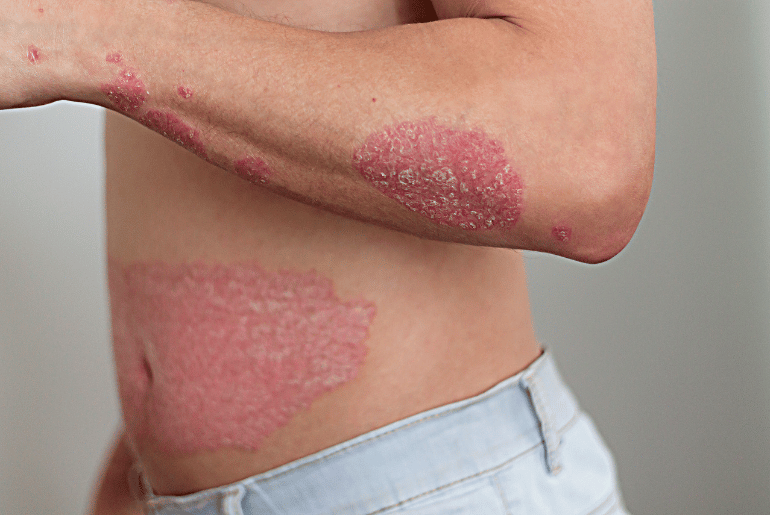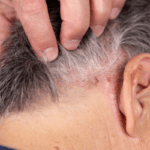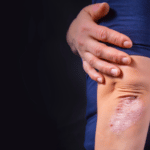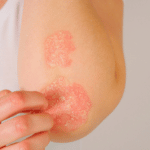Psoriasis is an autoimmune skin condition – it can trigger anytime and may leave without warning. When the symptoms of psoriasis subside, people usually go through phases where they may notice clear or close to clear skin.
Treating psoriasis before it gets severe can help you avoid serious flare-ups and prevents it from spreading further. However, it is an ongoing process that prioritizes consulting a professional. You’ll also need to stick to your treatment plan and figure out what causes the problem. Once you’ve found your cause, you can avoid them.
Treatment may result in clear skin with no signs or symptoms of psoriasis. “Remission” is a common medical term for this. A remission might last months or years, but it usually lasts between 1-12 months.
Because psoriasis is unpredictable in nature, it’s impossible to know who will suffer from psoriasis and how long it will continue.
Psoriasis may return even after it has cleared. Once it develops, medication will make it easier to manage so that your skin problem does not worsen.
Read: Psoriasis Treatment Diet: Foods to Eat and Avoid
There are various methods of treating psoriasis and we will take them one by one…
Topical therapy
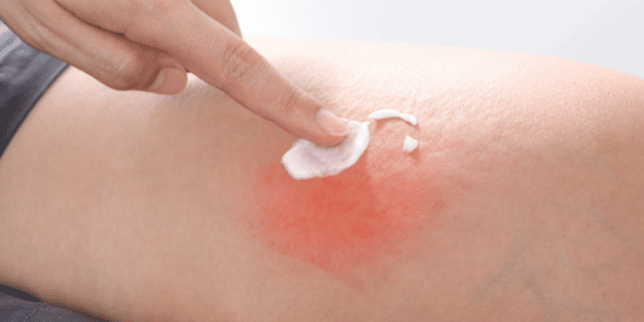
There are ointments, cream, lotion, shampoo, gel, etc. that can be applied to your skin. These topicals help in reducing redness, irritation, rashes, and pain, and are likely to range from moderate to harsh. For example,
- Salicylic acid
- Corticosteroids
- Retinoid
- Vitamin D analogs
- Anthralin
It is often suggested to consult an expert dermatologist before taking any medication or ointment. This is because some of them may reduce the skin layers and excessive usage can thin your skin heavily.
Light therapy
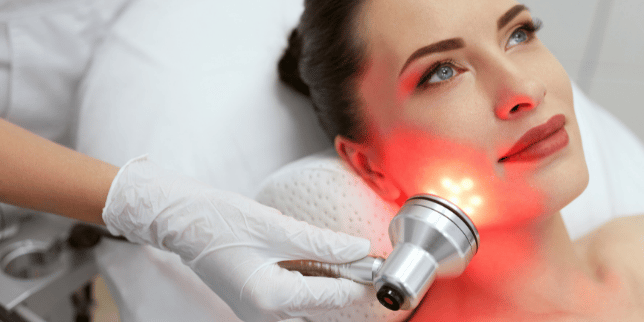
Light therapy, alone or used along with pharmaceuticals, is used as a first-line treatment for moderate to severe psoriasis. It entails exposing the skin to varying degrees of natural or artificial light. This treatment is done in sessions, and it is an ongoing treatment. Consult your doctor about whether home phototherapy is a viable option for you.
Some of the light therapies that help in treating psoriasis are –
- UVB Broadband
- UVB narrowband
- Excimer laser
- Psoralen plus ultraviolet A (PUVA)
- Sunlight
If other therapies for moderate to severe psoriasis have failed, your doctor may prescribe oral or injectable medication. Because of the risk of severe side effects, many of these drugs are only administered for short periods and may be alternated with other treatments.
It is observed that injected medicines work faster than oral medications. This is because the injected medicines flow to the blood and veins immediately and show results, while oral medications may take some time while passing through the digestive tract.
- Steroid injections are given on small constant psoriasis patches.
- Retinoid pills to reduce skin cell production.
- Cyclosporine is given orally for severe cases of psoriasis.
- Methotrexate is given weekly as a single dose, orally.
- Biologics are injected to change the way the immune system functions, thereby disrupting the disease cycle.
Treatment Method
Although doctors choose treatments based on the type and severity of psoriasis as well as the areas of skin affected, the standard approach in people with common skin lesions (plaques) is, to begin with, the mildest treatments — topical creams and UV rays (phototherapy) — and progress to stronger ones as needed.
Individuals with pustular or erythrodermic psoriasis, or arthritis, may want to begin treatment with routine medical care. The goal is to find the most effective method to reduce cell turnover with lesser side effects possible.
Read: 5 Ways How to Stop Psoriasis from Spreading
Alternative Treatments
- Cream with aloe extract. Succulent extract cream, derived from the leaves of the aloe vera plant, may help to reduce redness, inflammation, scaling, and itching.
- Supplements containing fish oil. Oral fish oil combined with UVB therapy can help to reduce the number of damaged skin cells. Scaling can be improved by applying fish oil to the afflicted area and covering it with a dressing for 6 hours every day for 4 weeks.
- Oregon grape. This substance, sometimes known as barberry, is applied to the skin and helps to reduce the severity of skin illness.
- Essential oil. Aromatherapy with essential oils has been found to reduce tension and anxiety.
Home Remedies for Treating Psoriasis

- Apple cider vinegar. After it has dried, rinse it off with apple cider vinegar to avoid irritation. Don’t try this upon bleeding or cracked scalp.
- Sun’s UV rays. As previously stated, expose yourself to the sun for 5 to 10 minutes each day and apply sunscreen to regions not affected by psoriasis.
- Add salt to the bath. Fill a tub halfway with warm water and add the Dead Sea or Epsom salts. Soak for about 15 minutes, then use a moisturizer to seal in the moisture.
- Turmeric. It has been shown in studies that turmeric helps in reducing psoriasis flare-ups. You can use it as a supplement or as a component in your meals.
- Use tea tree oil. Shampoos containing tea tree oil can help with scalp psoriasis, but additional research is needed.
- Try yoga and meditation. Reduce your stress levels to get rid of your symptoms. Meditation can help you cope with your psoriasis. Yoga is also beneficial for those with psoriatic arthritis since it relieves joint discomfort and increases the range of motion.
- More Omega-3. As mentioned above fish oil supplements are beneficial in psoriasis. If you can’t get a fish oil supplement, then eat fish like salmon, sardines, mackerel, and tuna.
- Use olive oil. Olive oil, when used directly on the skin, can have calming properties. During your next shower, massage a few tablespoons into your scalp to help loosen stubborn plaques.
Switch to a Healthy Diet Plan
Diet can play a role in psoriasis treatment. Red meat, carbs, refined sugars, alcohol, and saturated fats are all foods that might cause flare-ups. Coldwater fish, seeds, nuts, and omega-3 fatty acids are all known for their anti-inflammatory properties. These can help in reducing psoriasis symptoms.
Wrapping Up
There isn’t a single rule that keeps notorious psoriasis symptoms in control. What applies to one individual might not work for someone else. Aside from psoriasis, several treatment options may have negative side effects for pre-existing conditions, so it’s always advised to consult with a dermatologist.
Please note that the above-mentioned skin issue solutions may help in minor cases. However, prescription medical attention is required in more serious circumstances. Before seeking treatment on your own, speak with your doctor.

